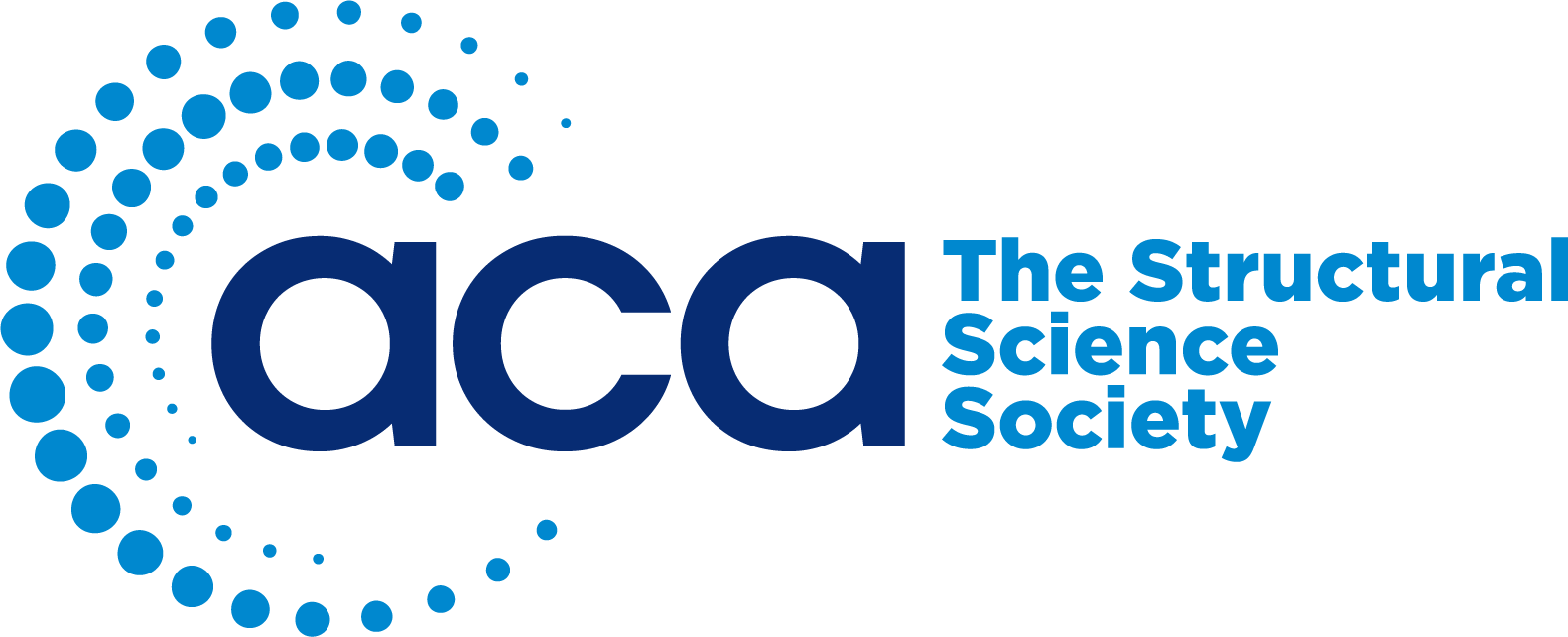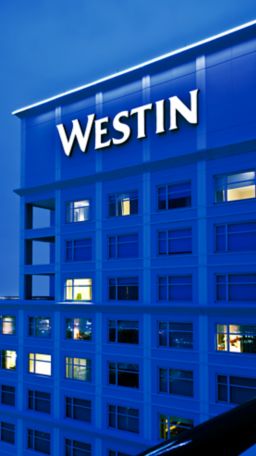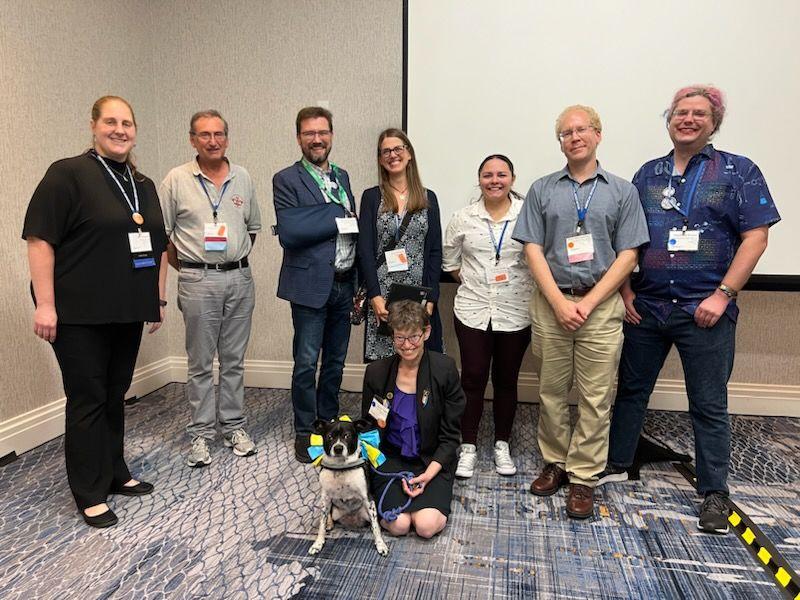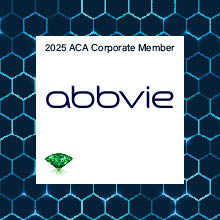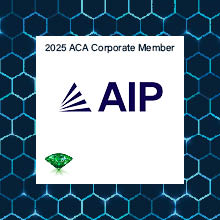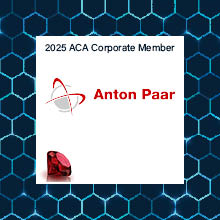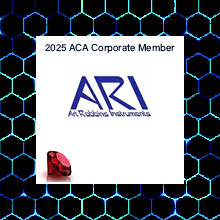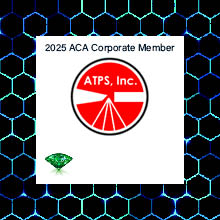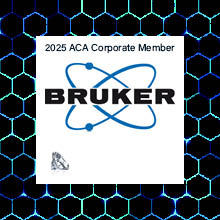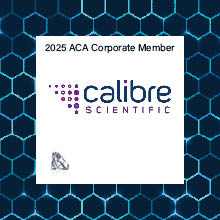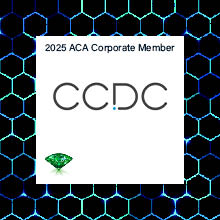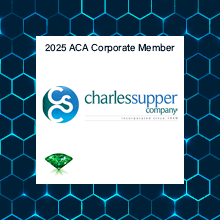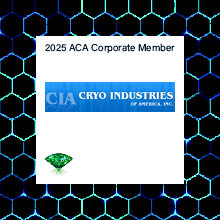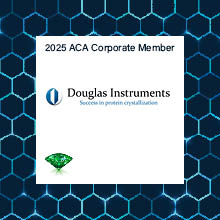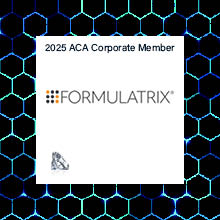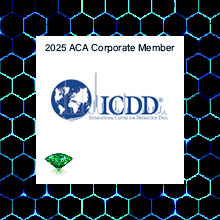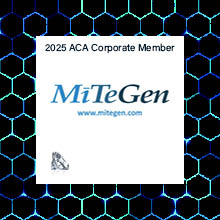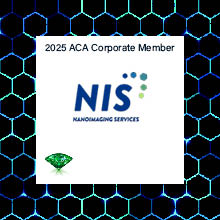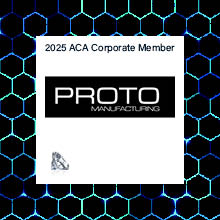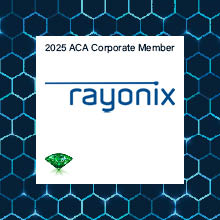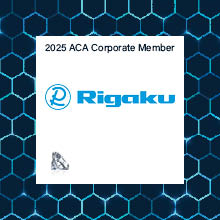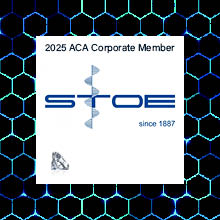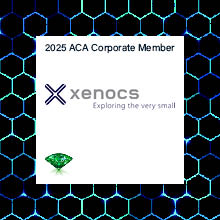- Home
- About ACA
- Publications & Resources
- Programs
- Annual Meeting
- Membership
- ACA History Center
- Media Archive
ACA Session Chair ResourcesBeing a session chair is a valuable role and an essential service to our society. The success of our annual meeting relies on the dedication and support of our session chairs, and we sincerely appreciate the time and effort you contribute to the ACA—thank you! If you’re interested in becoming a session chair for future meetings, please reach out to your SIG Chair to express your interest!
IMPORTANT LINKS:
Meeting Info
Meeting CommitteeThe ACA Meeting Committee is responsible for planning and organizing the American Crystallographic Association's annual meeting. This committee oversees the development of the scientific program, coordination of workshops, selection of keynote speakers, and management of logistical details to ensure a successful and engaging event. The committee collaborates closely with SIG chairs, council members, and other ACA committees to create a diverse and impactful experience for attendees, fostering networking, professional development, and the exchange of cutting-edge research in the field of structural science. The members of the committee are: Samantha Powell (22-25), Stacey Smith (23-26), Sarah Bowman (24-27) and Christine Beavers (25-28)
General Information, Links & Documents (Updated 12/12/2024)
Session Chair CommunicationWe primarily communicate via email and kindly ask session chairs to safelist the ACA to ensure you receive important emails, notices, and deadlines promptly at your preferred email address. Please verify that your preferred contact email is correctly listed in your ACA profile. Additionally, if your organization's email system restricts delivery, we recommend logging into your ACA profile regularly to access all communications from the association. This year, we’re introducing a Session Chair Forum for questions and discussions related to session chair responsibilities. We highly recommend updating your ACA forum settings to ensure you receive all posts and updates.
At certain moments in the planning process the Meeting Committee will host session chair onboarding sessions to review a timely topic or process. Attendance at these meetings by the session chairs is not required but highly encouraged.
2025 Calendar & Important Dates[These dates are tentative and are subject to change by the Meeting Committee with notice to Session Chairs]
Session Chair Membership & RegistrationFor logistical purposes, all meeting registrants must hold an ACA membership. We strongly encourage but do not require membership by December 31st. After January 15th session chairs have the option to register as non-members (the rate includes the membership fee) or to join and register later. Current ACA members who register will receive a 10% discount on the membership rate. Please note that the ACA does not waive registration fees for session chairs, nor are session chairs permitted to allocate sponsorship funds for their own reimbursement.
Session Organization ProcessThe ACA Meeting Committee has developed a session chair worksheet to guide session chairs throughout the meeting process. This document is for informational purposes only and does not need to be formally submitted. It outlines major deadlines, provides fundraising strategies, and offers tips for organizing sessions. Session chairs are responsible for compiling invited talks, reviewing contributed abstracts submitted to their sessions, and incorporating these into the schedule. Starting in February, session chairs should monitor submissions in the Oxford Abstract System to ensure that invited speakers submit their abstracts and that sufficient contributed abstracts are being received. If needed, session chairs are responsible for soliciting additional abstracts. Session chairs should note that each abstract must be accompanied by a paid registration. To present at the meeting (orally or as a poster), at least one author of the accepted abstract must register for the conference before submitting their abstract. Session chairs must ensure that at least 40% of the talks are from contributed abstracts. If a contributed abstract is selected for an oral presentation, the session chair must confirm with the author that they are willing to present. Authors may submit only one abstract, unless they have permission to submit a second abstract for an educational session from the Meeting Committee. After the abstract deadline, session chairs will organize talks, assign times to speakers, and include any Etter Award winners in the schedule. The Meeting Committee has also provided a list of timing options that session chairs can use as a guide when organizing their sessions.
Once each session is organized, HQ will notify speakers of their acceptance via email, including the date and time of their talk. We encourage session chairs to follow up with presenters in the two months prior to the meeting to ensure they are aware of the presentation guidelines, session schedule and to answer any questions that they may have regarding the session or their presentation. Please note that due to the complexities involved in scheduling, we cannot guarantee specific days or times for presentations. However, in exceptional circumstances, we may accommodate speaker requests if session chairs communicate these conflicts early in the planning process. Any such requests should be reported to the Meeting Committee for individual consideration. The 2025 ACA Annual Meeting will be held live and in-person, and all presentations are expected to be delivered on-site. If a speaker requires special accommodations, please inform ACA HQ as early as possible so arrangements can be made before the meeting begins.
Fundraising Estimation & GuideSession chairs are encouraged to seek sponsorship funds to support invited speakers as needed. While the ACA does not offer complimentary registrations, limited funds are allocated to the Meeting Committee to support cases of genuine need, but funds cannot be guaranteed. As such, when inviting speakers to submit an abstract and attend the meeting, it’s helpful to discuss their potential financial needs and gather an estimate of the support that would be beneficial. Having this conversation will provide insight into the level of support required by an invited speaker, enabling you to set a realistic fundraising goal. In many cases, established speakers may not need financial assistance at all. For reference, this year’s regular room rate is $179++ per night. Speakers will also need to register for the meeting, and becoming an ACA member offers a significant discount. Invited speakers receive an additional 10% off the member registration rate (with a discount code to be provided to session chairs in January). To give you an idea of typical expenses for a standard attendee staying four days:
We ask that each session includes at least five (5) talks so, based on the estimate above, the total cost for five speakers could be approximately $7,050. Although reimbursing the full amount for all speakers is uncommon, you may set your sponsorship target around this amount (or less). As a session chair, you can also request allocation of funds differently, offering more support based on a speaker’s financial need or career level (e.g., students may have lower expenses than regular attendees). Additionally, it is in your discretion not to fundraise or offer speaker reimbursement at all. If you do pursue fundraising, the ACA offers various resources to support session chairs in their fundraising efforts. These include an informational guide on fundraising strategies and a sample letter for reaching out to potential sponsors. Additionally, ACA Headquarters will distribute a prospectus outlining sponsorship opportunities for the annual meeting. The official website will provide sponsors with a direct link to submit their support. To guarantee recognition in conference materials, sponsorship payments should be received by June 16, 2025. Payments received after this date may not be included in printed materials, and the funds may not be available for distribution to speakers until after the meeting. In early June, ACA Headquarters will inform session chairs of the total funds raised for their session and will collect reimbursement request forms for speakers. It is at this time that session chairs may submit requests for speaker reimbursements in cases of financial need. The Meeting Committee will review all requests and provide a final list of approved speaker reimbursements. ACA Headquarters will notify authors eligible for reimbursement via email, and checks will be available for pickup at the registration desk during the conference.
Speaker Reimbursement PolicyPlease note that ACA will not cash checks on behalf of participants.
Onsite Session Chair InformationAs an ACA session chair, you serve as the host and coordinator of your session. To ensure a smooth and engaging experience for both speakers and attendees, please be prepared to:
Planning for ACA Meeting 2027 & Session Suggestion ProcessAs the ACA will be co-hosting the Twenty-Seventh IUCr Congress and General Assembly in Calgary, Alberta, Canada, from August 11–18, 2026, there will be no planning meeting at the 2025 ACA Annual Meeting. Instead, a planning meeting will take place during or after the 2026 Congress in Calgary, after which we will resume the usual session proposal process. Sessions for each ACA Annual Meeting are developed through the Scientific Interest Groups (SIGs), which typically meet annually in the month preceding the Annual Meeting. In 2026, before the congress, SIG officers are expected to solicit session proposals for the 2027 meeting from their members. Each proposal should include (1) a session title, (2) two confirmed session chairs along with their contact information, and (3) a brief description of the session (approximately one paragraph). These proposals will then be discussed and ranked at the SIG meetings. SIG chairs will submit their prioritized list of proposed sessions for the 2027 meeting to the Meeting Committee before the start of the 2026 IUCr Congress. During the congress, SIG officers will attend a planning meeting with the Meeting Committee to finalize the session list and begin scheduling them into available time slots for the 2027 meeting.
After the MeetingSession chairs are requested to submit a session summary and any accompanying photos to the RefleXions editor by August 29th for inclusion in the Fall issue. Examples of previous session summaries are available in the archived Fall issues of RefleXions for reference.
|
